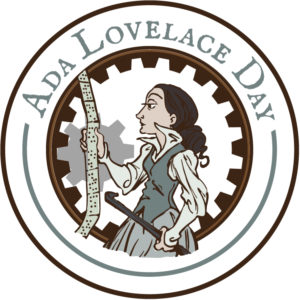 We’re all used to seeing the stats now. Diversity and inclusion pays all sorts of dividends, both in terms of staff happiness and for a business’s bottom line.
We’re all used to seeing the stats now. Diversity and inclusion pays all sorts of dividends, both in terms of staff happiness and for a business’s bottom line.
As Emma Ascott writers on AllWork, the future of work is inclusive. Companies with racially diverse senior leaders have a “36% higher likelihood of financially outperforming companies with little or no diversity”, and “companies with greater gender diversity perform 15% to 21% better than companies with little or no gender diversity among staff members.” Furthermore, “68% of U.S. consumers expect brands to be clear about their values, while Millennials and Gen Z workers have the highest expectations of all age groups”.
In short, your employees want to work for a company that values diversity and your company will make more money if you pay attention to them.
Ascott lists McKinsey’s three recommendations for improving diversity:
- Make diversity a priority
- Challenge biases to increase equity
- Improve inclusivity
But what does all that really mean?
1. Make diversity a priority
McKinsey focuses on how profitable investing in diversity ultimately is, but they tiptoe around the fact that you’re going to have to spend some money on meaningful diversity and inclusion work. Think of it the same way you would marketing, product development, or anything else that grows your business: Put someone in charge, ensure that they have budget and staff, and empower them to make decisions.
You should also bring in consultants to work with your DEI team on specific aspects of your strategy, such as gender equity, neurodiversity, and disability, just as you’d hire in other specialist expertise.
2. Challenge biases to increase equity
McKinsey focuses on removing bias from the early hiring process, but the need to tackle bias runs much deeper than that. Bias exists everywhere, from hiring to promotion to how the business actually works on a day to day basis. Whenever people interact, there’s a possibility that bias is affecting the outcome.
Unconscious bias training has been the go-to solution for bias, but there’s very little evidence that works and some evidence it can backfire. Even when it does work, staff turnover means that you’ll need to keep repeating the training again, and again, and again.
Instead, look at how the impact of bias can be mitigated across your company through improved workflow, policies, structures and processes. Tackle bias at the institutional and systemic level so that change becomes permanently embedded in your culture. For example, instead of leaving it down to individual recruiters to write unbiased job ads, decide what a balanced ad looks like and create standards, templates and review processes that ensure ever job ad is widely attractive and avoids biased language and assumptions.
3. Improve inclusivity
Diversity is nothing without inclusion. You can have a diverse workforce, but if your employees don’t have a voice then you aren’t going to benefit from their expertise and experiences, and they aren’t going to stay with you for long.
McKinsey splits inclusion in two, looking at both employees’ “personal experience and the way they perceive their organization more broadly”.
On the level of personal experience, tackling bias as detailed above will automatically lead to a more inclusive experience for all employees. But it’s also important to think about day-to-day interventions that can make a difference. For example, how do you run meetings? Does everyone have the chance to speak? Changing meeting culture is one of the most obvious but least addressed issues that affects how inclusive companies are in practice.
Equally important are management processes, such as how reviews are carried out, promotion criteria, and complaints and disciplinary procedures.
And on a broader level, companies should consider how they organise socially, what support structures they have in place, and how they run their CSR programs.
DEI isn’t a nice to have anymore, it should be – it must be – a fully funded business priority. And it needs to be viewed holistically. There are few parts of a business that aren’t affected by DEI and companies that take a robust root and branch approach will reap the rewards of lower staff turn over, and higher staff happiness and higher profitability.
If you want a hand developing a robust DEI strategy or reviewing your existing programs, I can help. Email me to set up a free, no-obligation 45 minute call!
 SUSE is a global leader in innovative, reliable and enterprise-grade open source solutions. We specialise in Enterprise Linux, Kubernetes Management, and Edge solutions, and collaborate with partners and communities to empower our customers to innovate everywhere – from the data centre, to the cloud, to the edge and beyond. SUSE puts the “open” back in open source, giving customers the agility to tackle innovation challenges today and the freedom to evolve their strategy and solutions tomorrow. Follow SUSE on Twitter or LinkedIn.
SUSE is a global leader in innovative, reliable and enterprise-grade open source solutions. We specialise in Enterprise Linux, Kubernetes Management, and Edge solutions, and collaborate with partners and communities to empower our customers to innovate everywhere – from the data centre, to the cloud, to the edge and beyond. SUSE puts the “open” back in open source, giving customers the agility to tackle innovation challenges today and the freedom to evolve their strategy and solutions tomorrow. Follow SUSE on Twitter or LinkedIn. We’re all used to seeing the stats now. Diversity and inclusion pays all sorts of dividends, both in terms of staff happiness and for a business’s bottom line.
We’re all used to seeing the stats now. Diversity and inclusion pays all sorts of dividends, both in terms of staff happiness and for a business’s bottom line. This year, we will be celebrating the 14th Ada Lovelace Day on 11 October. When I founded ALD in 2009, I had no plans for 2010, let alone 2022. But although Ada Lovelace Day itself has been more successful than I could ever have imagined, inspiring girls and women around the world, a lot has changed since it was launched.
This year, we will be celebrating the 14th Ada Lovelace Day on 11 October. When I founded ALD in 2009, I had no plans for 2010, let alone 2022. But although Ada Lovelace Day itself has been more successful than I could ever have imagined, inspiring girls and women around the world, a lot has changed since it was launched.